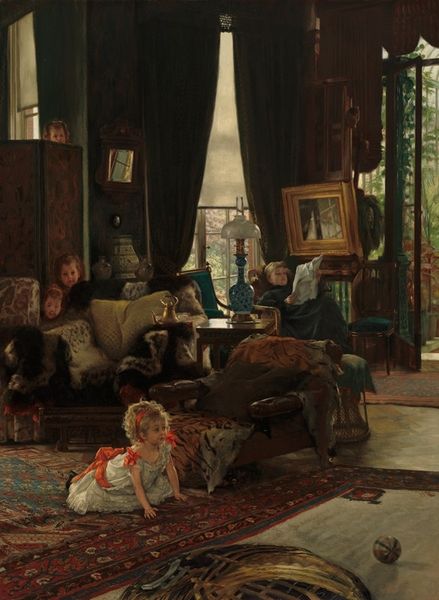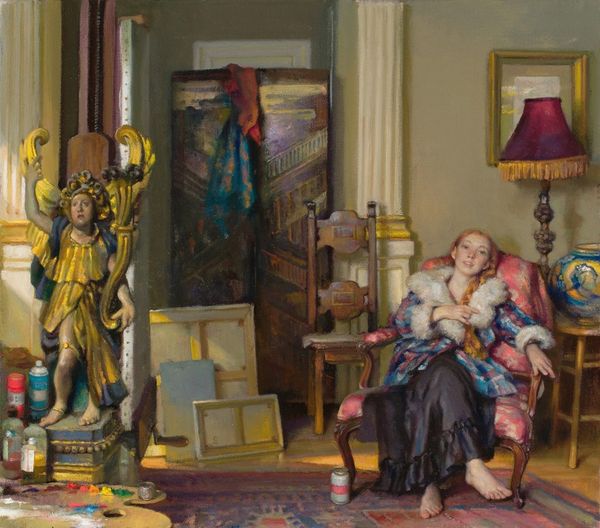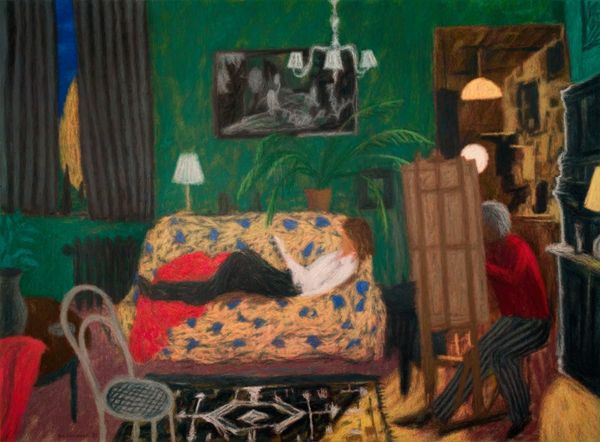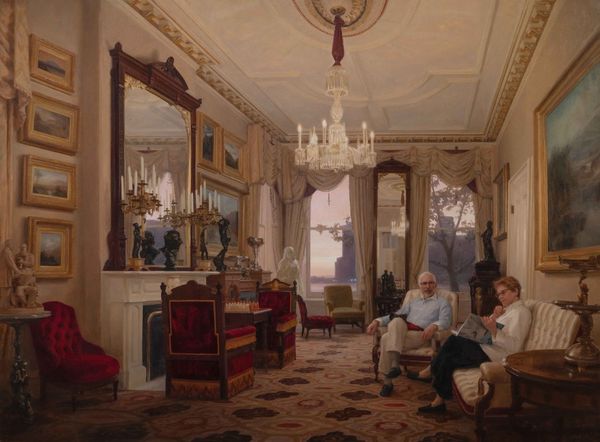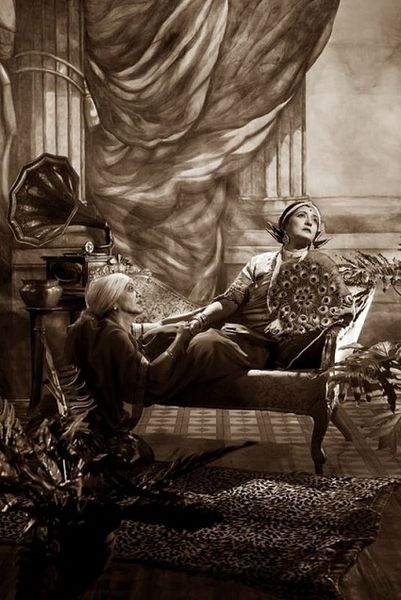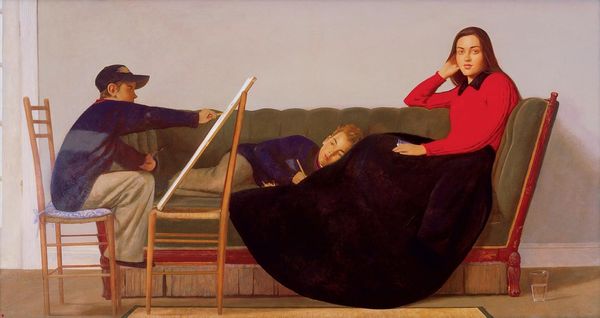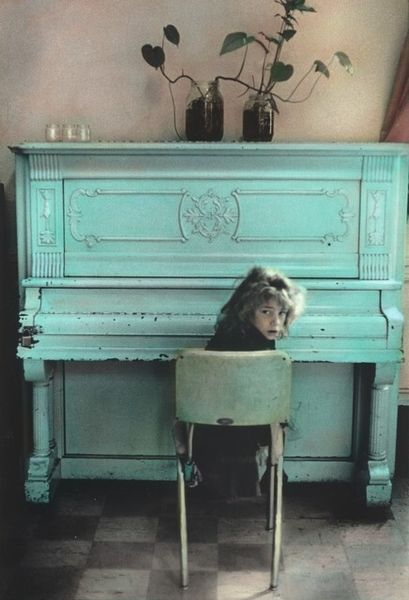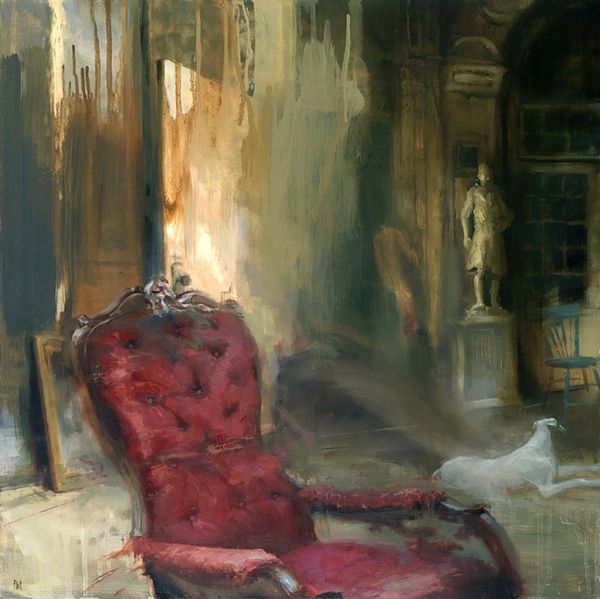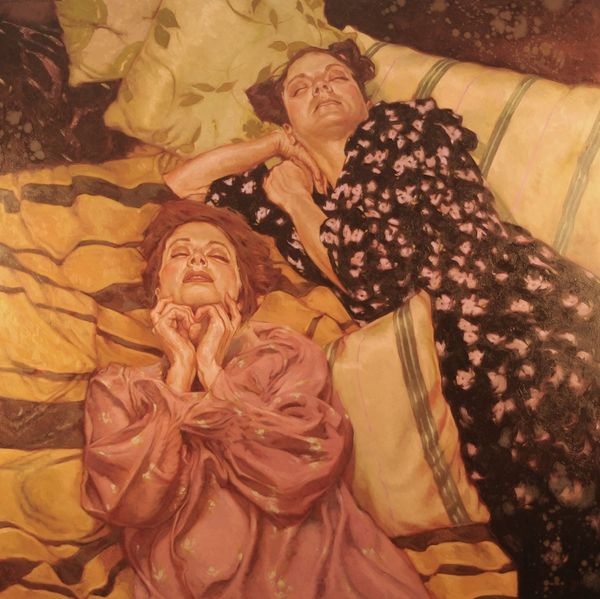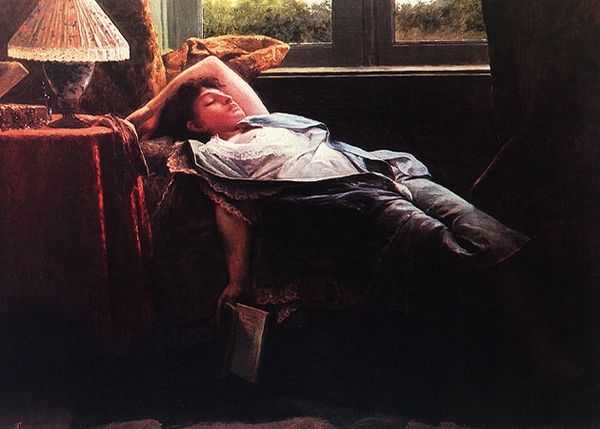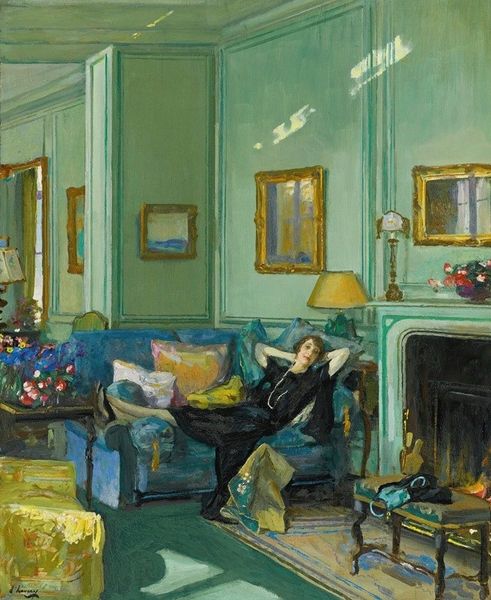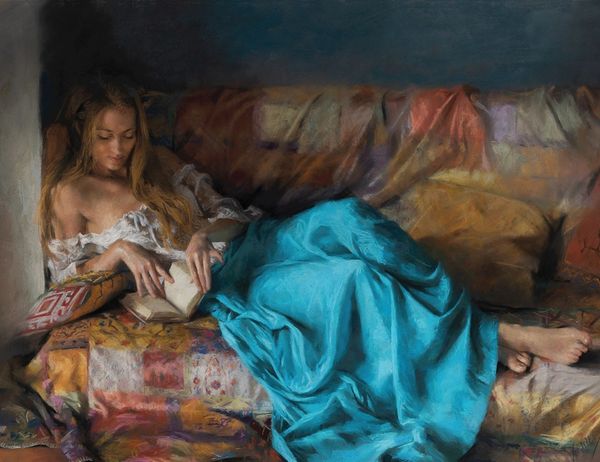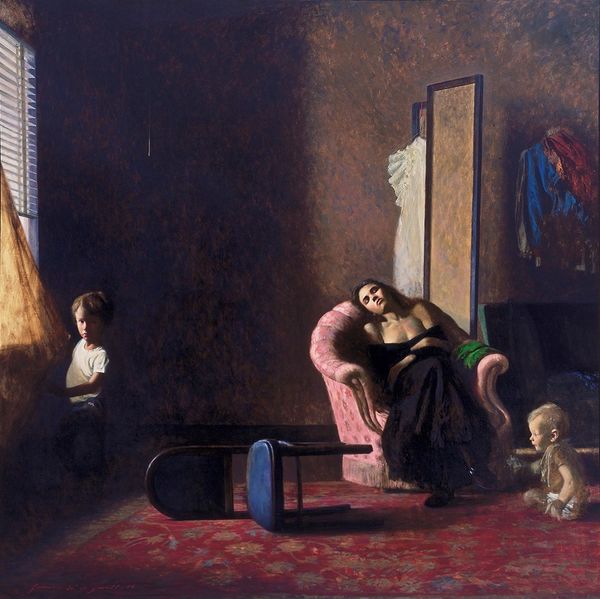
painting, oil-paint
#
portrait
#
figurative
#
painting
#
oil-paint
#
painted
#
figuration
#
oil painting
#
genre-painting
#
realism
Copyright: Modern Artists: Artvee
Curator: Oh, this has such a hushed feeling to it. Makes you want to sink into a velvet couch with a good book. Editor: Indeed. What we're looking at here is "33 Tite Street," an oil painting created by Nelson Shanks in 1975. Curator: It’s wonderfully rich. Look at those deep reds playing off the subdued green of the couch—almost a musical interplay of color. Makes me wonder, did Shanks know something about the sitter, some hidden chord of their personality he was trying to capture? Editor: I see the chromatic relationships and note the strong contrast. We have a formal arrangement, nearly symmetrical, anchored by the architectural details in the background and the figure positioned along a horizontal axis. Curator: Almost severe, isn't it? But then that slouch on the couch! It brings it all down to earth, like a secret whispered. And all that carefully rendered detail—the books, the furniture—it speaks volumes about the sitter's world, doesn't it? A whole life curated just so. Editor: I note the use of light—how it's controlled to create a sense of depth, and how it falls softly on the subject, highlighting the contours of her face. He has created depth by using different levels of illumination and shade, as can be seen in the curtains or under the chair, or to emphasize volume in the woman's clothing. Curator: Definitely! But what gets me most is how it blends the public and private. The grand, formal setting, versus the casual pose of the woman. There’s a push and pull there that’s so human, so relatable, isn’t it? As though to be a person involves that duality somehow, and how it is beautiful. Editor: You have spoken well; and through Shanks' choices he asks us to meditate not on an accurate likeness but an attempt at formal harmony and, more precisely, what such harmony is, in the intimate confines of one's house. Curator: Yes. Thinking about it I realize that "harmony" isn't always soft. Sometimes, it's born of clashes and contrast; it’s about making the contradictions sing. Thank you for revealing more.
Comments
No comments
Be the first to comment and join the conversation on the ultimate creative platform.
